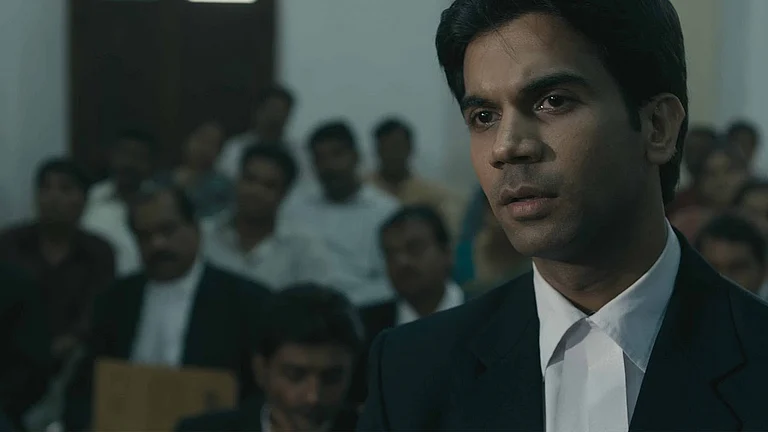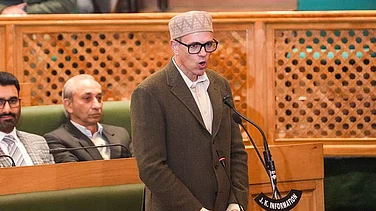As Himachal Pradesh goes to vote on November 12, the Bharatiya Janata Party (BJP) has a tough battle ahead to make it back to power in the state.
Banking on prime minister, Narendra Modi’s, charisma that had worked for the party in two parliamentary elections in 2014 and 2019, and state assembly polls in 2017, the BJP has coined a slogan—‘Abki baar raj nahin, riwaaz badlega’ (This time the custom of rotating governments will change). Modi, in his poll rallies, says, “The moment you press the EVM button on the lotus, your vote will go to my credit.”
But faced with rebellion in 21 out of the 68 assembly constituencies, where aspirants have decided to contest against official candidates, the BJP seems to be facing dissent within its own ranks. The trouble is the result of the party’s decision to deny tickets to 11 sitting MLAs, drop a cabinet minister from the contest and shift the constituencies of two others. Twenty new faces were fielded this time, a first-time experiment. The objective was to stop anti-incumbency hitting the party’s chances at coming to power. That is changing the riwaaz (customs).
Those who rebelled include a former Rajya Sabha member, Kripal Parmar, who contested from Fatehpur, a constituency where he could not make it to the assembly in 2017, despite Modi campaigning for him. Modi also tried to reach out him over the phone but Parmar, a party vice-president, refused to withdraw from the fray, telling the prime minister “You are late by two days” if a viral video is to be believed. He later confirmed the authenticity of the clip. Today, he stands expelled from the party.
Parmar’s rebellion is not an isolated case. There has been a similar defiance of party discipline in Bilaspur, the home constituency of JP Nadda, BJP national president. Nadda spent three days in Bilaspur to dissuade rebels in Bilaspur and other places but failed.
This is an unexpected challenge the BJP is facing. The constituencies where the ruling party wanted to do well, districts like Mandi which is chief minister, Jai Ram Thakur’s, home district, Kullu, Bilaspur, Kinnaur, Chamba and Kangra have independents or party rebels.

Notable ones are Abhishek Thakur, son of party veteran, Roop Singh Thakur, at Sundernagar (Mandi), Praveen Sharma, BJP’s media in-charge at Mandi (Sadar), Kishori Lal, a sitting MLA (Ani in Kullu) and KL Thakur, former MLA Nalagarh (Solan), ex-MLA, Tejwant Negi, in Kinnaur and Hiteshwar Singh, former MP, and Maheshwar Singh, at Banjar (Kullu). Maheshwar Singh had also revolted against the party but was prevailed upon by Nadda to withdraw his new candidature.
What initially looked like a comfortable win for the ruling BJP against the backdrop of the trend seen in recent state assembly elections in Uttar Pradesh, Uttarakhand, Goa and Manipur, is turning into an uphill task. Factors vary. Discontent in, and with, the party palpably hint at surprises in store in Himachal Pradesh. Himachal Pradesh has never voted back its incumbent government since 1985. Virbhadra Singh, a six-time chief minister and his arch rival, Prem Kumar Dhumal, a BJP stalwart, could not bring their governments back to power.
Jai Ram Thakur, a five-time MLA, emerged as the BJP-RSS choice for the post of chief minister after Prem Kumar Dhumal, the party’s projected CM in 2017, became the BJP’s face for the poll. This is the first real test he will be facing to prove himself as the next generation leader of the BJP, after his predecessors, including Virbhadra Singh, who despite his popularity, were never voted back in succession.
There are few advantages to the BJP this election. Party warhorse, Virbhadra Singh, one of the Congress’ tallest leaders, died last year. The Congress is mired in factionalism, desertions and a leadership crisis. It is trying to encash on the Virbhadra Singh legacy and made his wife, Pratibha Singh, PCC chief ahead of the polls.
The BJP views its prospects in its slogan of “double engine sarkar.” It claims major development projects, liberal funding on large infrastructure—national highways, four-lane road projects, railway expansion, health institutes like AIIMS Bilaspur and welfare measures—are possible only due to the same party government at the centre and in the state.
“Prime Minister, Narendra Modi, has a special love for Himachal Pradesh in his heart. Whatever he gave to Himachal Pradesh was out of his affection. This is the biggest factor” says Nadda. He cites projects like the Rs 1,470 cr All India institute of Medical Science (AIIMS )project at Bilaspur, the Rs 2,000 cr bulk drug park, the foundation for which Modi laid recently in Una, and a medical device park in Baddi. These projects will bring investments to the tune of thousands of crores and generate massive employment. A Vande Bharat express train has started from Una.
The Congress, however, doesn’t see the Modi factor really helping the BJP as it did in the 2014 and 2019 Parliamentary elections and even the 2017 state assembly polls. “Modi is definitely a big leader and commands respect in the state. He will be a factor in the 2024 elections once again,” says Sukhwinder Sukhu, the Congress campaign committee head.
Right now, the biggest election issue working against the BJP is the Old Pension Scheme (OPS). The New Pension Scheme (NPS) Employees Federation is demanding OPS as a condition to vote for the ruling BJP. “We will support only a party which commits to giving us OPS,” says Baldev Singh Negi, an office-bearer of NPS Employees Federation.
Himachal Pradesh has approximately 2.70 lakh employees and 1.60 lakh pensioners. Almost every second household in the state has at least one person employed in the government. Chief Minister Jai Ram Thakur admits, “We may disagree or agree but OPS is an issue in the election. The Congress is undoubtedly going to be the beneficiary.”
In his defence, Thakur asks the agitating employees to remember that it was Congress government, led by Virbhadra Singh, which implemented the New Pension Scheme (NPS) in Himachal Pradesh.
“We have looked after the interests of employees well. Their salaries and allowances were paid without delays or cuts during the Covid-19 lockdown periods. A committee on OPS has also been set up under the chief secretary to suggest a way out,” he explained in an interview to Outlook.
Nevertheless, the OPS has come handy to the Congress in its route back to power. The party, in its 10 guarantees (manifesto promises), has put OPS at the top as two Congress governments, Rajasthan and Chhattisgarh, have already restored OPS for employees. PCC chief Pratibha Singh, three-time MP, says that the current chief minister, Jai Ram Thakur, during his five years, alienated every section. No development happened. Employees are unhappy. There are 13-14 lakh unemployed youth. They are asking how question papers for police constable recruitments were sold for Rs 6 to 7 lakh each. Apple growers are also angry. “OPS will be restored on day one of the new government. This is a guarantee we have given the employees. We have also promised one lakh jobs in the first year of the Congress” she told Outlook, exuding confidence that the Congress will return to power.
(This appeared in the print edition as "Bumpy ride ahead in the hills")


























